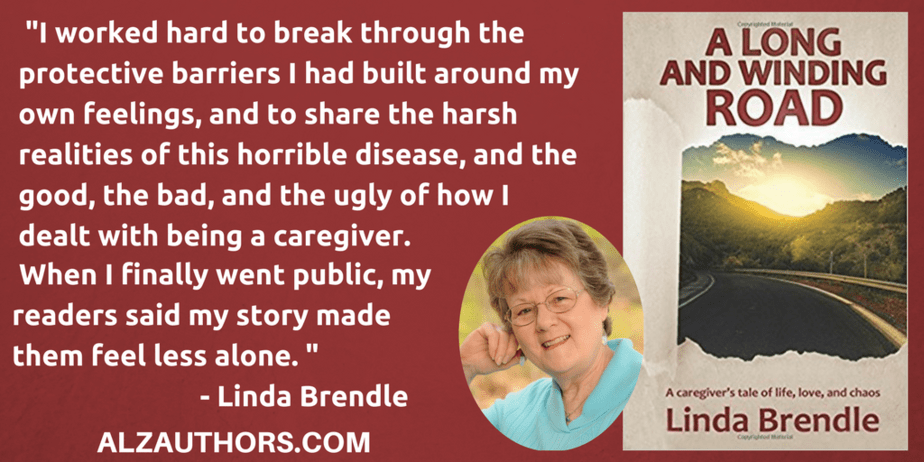Becoming a caregiver was not one of my ambitions either. When I was in the seventh grade and was asked to write an essay on “What I Want to Be When I Grow Up,” my choice of careers was not caring for my aging parents. However, when a loved one has a need, you step in to help. Then, whether by small increments as the need progresses, or all at once because of a catastrophic event, you realize that you have become a caregiver.
When I became a real hands-on caregiver, I often went to Aunt Fay for advice. She’s Mom’s younger sister, and she cared for both her mother and her husband for many years. One thing she told me was to keep a journal, because one day my experiences might be of help to someone else, and I took her advice. I didn’t write every day, but after a particularly trying episode, I’d write about it and post it on Facebook. It was a safe way to vent, people responded positively, and I was encouraged to continue to write.
Later, my husband David and I bought a motor home and fell in love with the RV life. We were both retired, so we decided to take an extended trip through the southeastern part of the United States. Mom and Dad were living with us by then, so they were included in the plans. I knew that sharing a tiny living space with two people with Alzheimer’s, even two people I loved dearly, would lead to many trying episodes, so I took along several of my favorite pens and a spiral notebook
Initially, I had no larger purpose in mind than to keep a record of our travels and perhaps gather material for a few Facebook posts. But situations that can be overlooked in a 2,600 square foot home are in your face in a 40-foot RV, and I began to pay closer attention to what was going on. I discovered more than I wanted to know about how much Alzheimer’s had taken from Mom and Dad. I realized that the simple tasks of taking a shower or shaving had become overwhelming, and simple decisions like ordering from a menu were impossible. I also recognized my own denial of our new reality.
By the time our journey was nearing its end, I began to wonder if my journal might be more than just a practice exercise, and visions of a book danced in my head. Once we were home and settled, I transcribed the handwritten manuscript onto my computer and polished it a bit. I asked my son, who had already published several books, to take a look at it. His response went something like this: “You tell a good story, but where is your story? Why are you in Florida; why are you caring for your parents; and who is David?”
I went back to the keyboard, and for the next several years I edited again and again. I worked hard to break through the protective barriers I had built around my own feelings and to share the harsh realities of this horrible disease and the good, the bad, and the ugly of how I dealt with being a caregiver. When I finally went public, my readers said my story made them feel less alone. By exposing my own fears and failures, I had given them permission to accept their own shortcomings, and to tell their own stories.
Purchase Book Here: Amazon
About the Author

I cared for my mother and father, both of whom had dementia, for fifteen years. After that season of my life passed, my husband David and I moved to the country where I work part-time at my church, garden when the notion strikes, tend to the whims of the feral cat who took over our home two years ago, and write about all of the above.




3 Responses
Reblogged this on Life After Caregiving and commented:
Visit AlzAuthors.com where I have been invited to share my thoughts on writing, caregiving, and Alzheimer’s.
Thanks Linda. Have you seen/read The Leisure Seeker? I saw the movie the other day. Read the book last month. Very good but sad. Reminded me of your book, which is much better.
I haven’t seen or read it, but I’ll check it out. And thanks for the positive comparison! 🙂